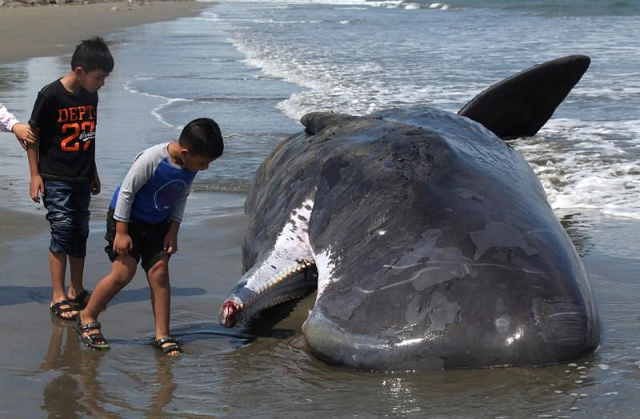US proposes roll back of endangered species protections
Endangered species are currently defined as in danger of extinction

US proposes roll back of endangered species protections.
PHOTO:REUTERS
The 1973 federal law is considered the gold standard for global environmental protection, and is credited with saving dozens of key species from extinction, including bald eagles, manatees, humpback whales and American alligators.
One proposed change, announced by the Interior and Commerce Departments, would remove a sentence that aims to separate economic impacts from decisions about animal protection.
Other provisions would vary protections for animals on a case-by-case basis.
Putin presents Trump World Cup football made in Pakistan
Meanwhile, another suggested change would remove a clause that automatically conveys the same protections to threatened species as endangered species.
"This change will not affect the protections for species currently listed as threatened, but will ensure that species listed as threatened in the future receive the protections tailored to the species' individual conservation needs," said the Fish and Wildlife Service in a statement.
Endangered species are currently defined as "in danger of extinction throughout all or a significant portion of its range," while threatened species are likely to become in danger of extinction within the "foreseeable future."
The proposals are now open for a 60-day public comment period, and may become law by year's end.
Environmental advocates said they vigorously oppose the proposed changes, describing them as attempts to strip a decades-long tradition.
"The regulatory changes proposed today are a transparent effort to weaken the Endangered Species Act by simply putting up roadblocks in front of effective management and creating unnecessary bureaucracy, with the final result putting threatened species in more peril," said Wildlife Conservation Society executive vice president, John Calvelli.
"We are concerned that the proposed changes will enable other considerations to influence decisions. We cannot condone the dilution of the role of science."
Administration officials described the proposals as an effort to make good on President Trump's campaign pledge to cut regulations.
"The Trump Administration is dedicated to being a good neighbor and being a better partner with the communities in which we operate," said US Fish and Wildlife Service principal deputy director, Greg Sheehan.
"One thing we heard over and over again was that ESA implementation was not consistent and often times very confusing to navigate. We are proposing these improvements to produce the best conservation results for the species while reducing the regulatory burden on the American people."
Donald Trump upends the global order
Senator Tom Carper, the top Democrat on the Environment and Public Works Committee, said he would fight the proposals because the Endangered Species Act is "one of our country's most popular and successful" environmental protection laws."
The proposals "are yet more examples of the Trump Administration catering to industry instead of the interests of the American people," he said.
A study published Wednesday in the journal Conservation Letters found widespread support among the American public for the Endangered Species Act, despite oft-repeated claims that its provisions are controversial.
In all, just one in 10 Americans opposes it, said results of a survey over more than 1,200 Americans.
Support is broad across the political spectrums, with 74% of conservatives, 77% of moderates and 90% of liberals saying they support the act.
Despite this, legislative attacks on the federal law to protect endangered species have been mounting in recent years, lead author Jeremy Bruskotter of Ohio State University said in a statement Wednesday.
"In the 1990s and 2000s, a typical year saw roughly five attempts to amend the act or curtail its protections. But from 2011 to 2015, there were about 33 legislative attacks per year--and there have been almost 150 in the last two years alone," he said.
"Government should be responsive to its citizens, but our research suggests that is not how government is working, at least not when it comes to environmental policy."



















COMMENTS
Comments are moderated and generally will be posted if they are on-topic and not abusive.
For more information, please see our Comments FAQ